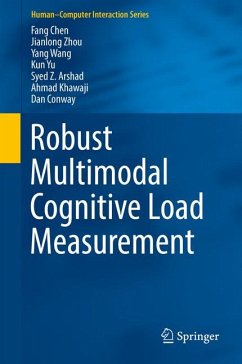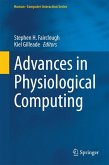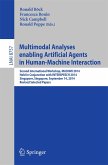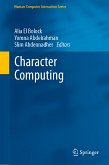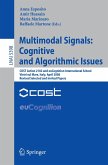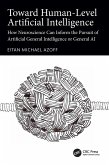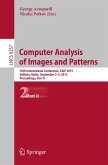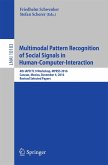This is the first book of its kind to systematically introduce various computational methods for automatic and real-time cognitive load measurement and by doing so moves the practical application of cognitive load measurement from the domain of the computer scientist and psychologist to more general end-users, ready for widespread implementation.
Robust Multimodal Cognitive Load Measurement is intended for researchers and practitioners involved with cognitive load studies and communities within the computer, cognitive, and social sciences. The book will especially benefit researchers in areas like behaviour analysis, social analytics, human-computer interaction (HCI), intelligent information processing, and decision support systems.
Dieser Download kann aus rechtlichen Gründen nur mit Rechnungsadresse in A, B, BG, CY, CZ, D, DK, EW, E, FIN, F, GR, HR, H, IRL, I, LT, L, LR, M, NL, PL, P, R, S, SLO, SK ausgeliefert werden.

